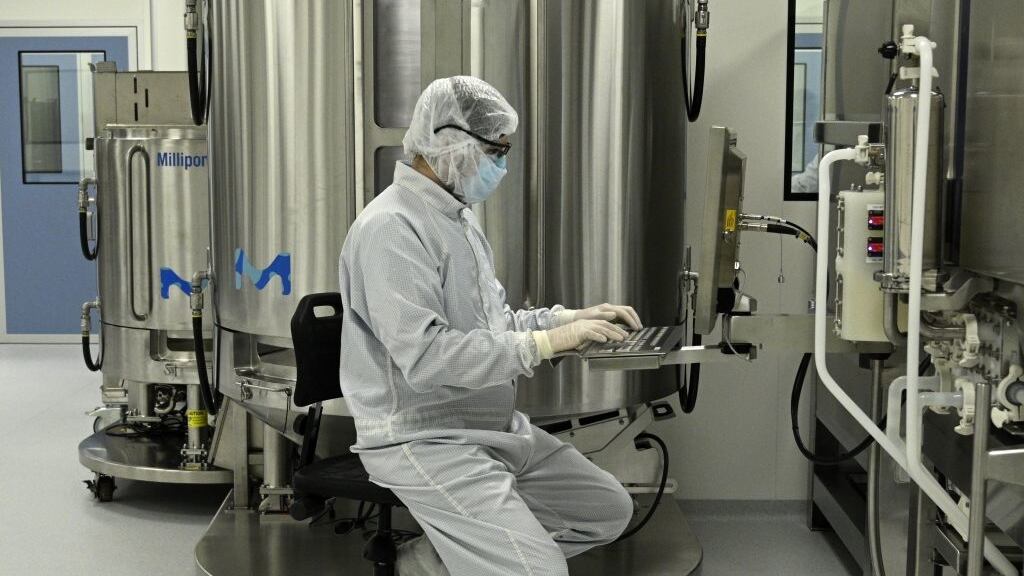It used to be that tourists got vaccinated before traveling.
In 2021, tourists could find themselves traveling to get vaccinated.
India looks set to be the first country where “vaccine tourism” could become a bona fide cottage industry after the world’s largest vaccine manufacturer, Serum Institute of India, said it would begin selling the AstraZeneca/Oxford vaccine privately as early as “March or April.”
Serum Institute has a licensing deal to produce the coronavirus vaccine developed by AstraZeneca and the University of Oxford, and has indeed already manufactured 40 million doses. On Monday, Serum Institute lodged the first formal application for emergency use approval for AstraZeneca’s COVID-19 vaccine and India expects to have the shot approved for use in the new year.
The company expects to sell some 20 million to 30 million doses to private facilities, according to Adar Poonawalla, chief executive.
“Everybody’s asking, ‘When can I access the vaccine?’ I’ve told those guys it’s probably going to be March or April,” Poonawalla told the Financial Times.
The Daily Beast has reached out to Poonawalla requesting comment.
Serum, the world’s largest vaccine manufacturer by the number of doses produced and sold globally, expects the AstraZeneca vaccine to retail for about $8 in the private market in India. For the Indian government, which is looking for some 300 million doses before July, Serum has set a “philanthropic price” of $3 a dose, Poonawalla told the FT.
Sixty percent of the Indian population, or an estimated 812 million people, live below the regional poverty line of $3.20 per day.
The availability of vaccines to those prepared to pay in poor countries such as India raises uncomfortable ethical questions largely avoided by the pharmaceutical companies behind the vaccines so far by restricting their products to official government channels.
Governments have pre-ordered millions of doses, so even if companies were willing to sell privately they would have to discharge their government contracts first, which may take months or even years.
AstraZeneca has pledged to sell the vaccine “at cost” during the pandemic, however, the FT has separately reported that the drug maker can unilaterally declare the pandemic over as soon as July.
It is unclear how the Serum Institute’s hope to sell millions of doses of the vaccine privately meshes with the previously announced terms of its licensing deal with AstraZeneca, designed to provide 1 billion doses of the vaccine to low- and middle-income countries.
There have also been warnings that there is likely to be a thriving trade in fake vaccines. Europol has warned member states in Europe that organized criminals are highly likely to manufacture fraudulent vaccines to take advantage of the expected massive demand.
The agency also warned of the risk of criminals hijacking vaccine shipments for the black market.
In the U.K. public health officials have said that vaccinations will be run by the NHS and that none of the government-procured shots will be sold to private clinics.
Pfizer, the U.S. pharmaceuticals group that has developed a COVID-19 vaccine with BioNTech, said recently that it had “no plans” to supply the vaccine to the private sector “for the foreseeable future.”
Johnson & Johnson, which has received around $500 million in development funding from Operation Warp Speed, as well as a commitment to buy 100 million doses at $1 billion, said it has made a commitment to “not-for-profit pricing.”
Other than India, one of the only other possible locations for vaccine tourists to consider is Russia.
The Gamaleya institute has asked foreigners interested in getting a shot of the controversial Sputnik V vaccine to “subscribe to Sputnik V social media channels to learn when Sputnik V will be available to foreign citizens in Russia.”
Form an orderly line, please.







